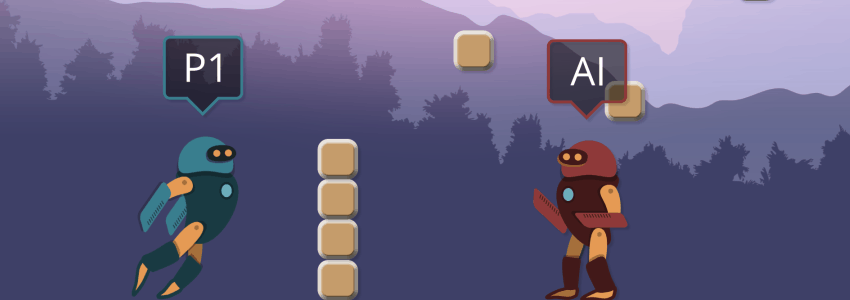What is Artificial intelligence?
Blog: AuraQuantic Blog
Throughout history, there has been speculation about the possibility of creating artificial systems capable of thinking and acting like human beings. It was only a matter of time before an idea as attractive as Artificial Intelligence gained relevance in this era in which computer science and digitalization are growing exponentially.
What is Artificial Intelligence – Definitions
Artificial intelligence is the simulation of human intelligence by machines.
In other words, it is the discipline that tries to create systems capable of learning and reasoning like human beings, learn from experience, find out how to solve problems under certain conditions, check information and carry out logical tasks in the way a human being would.
The fact that a system possesses humanoid hardware and physically acts as such is a field belonging to robotics, and moves away from the concept of Artificial Intelligence, which focuses on emulating the way humans think and reason.
It should be noted that, if a system could learn and think like a human being, it would have considerable advantages thanks to its speed and calculation capacity.
Historical Context and Artificial Intelligence Milestones
Artificial Intelligence is by no means a new concept; for example, in the seventeenth century the philosopher Descartes theorized about the possibility of intelligent automata.
Of course, it would not be until the mid-twentieth century when the topic began to take relevance.
One of the first formal challenges in this field was proposed by Alan Turing in 1950, which consisted of the following test: “A system is intelligent enough if it manages to pass itself off as a human before the questions of a judge.” Interestingly, this test is still a great challenge today.
In 1956, the renowned computer scientist John McCarthy coined the term “Artificial Intelligence” in the famous Dartmouth Conference. However, what seemed the rise of a branch of technological research ended in speculation and isolated projects for decades, because, among other reasons, it turned out to be a field in which nobody dared to seriously invest money.

Despite this, important advances were made, such as ELIZA, the first chatbot that implemented natural language (NLP) in 1966, the BKG 9.8 program that won the world backgammon champion in 1979, the first autonomous vehicles to cover substantial distances in Paris in 1994, or the AI Deep Blue created by IBM, which beat the chess champion Gary Kasparov in 1997.
With the arrival of the new century and the remarkable technological evolution, AI has become one of the unstoppable trends and milestones in this field are beginning to be very numerous, from expert systems capable of defeating a human in any intellectual activity to virtual assistants capable of organizing day to day affairs.
Artificial Intelligence use cases and examples
Artificial Intelligence is found in every corner of the modern world, but we do not always find it in the form of luxurious virtual assistants capable of recognizing our voice. Let’s see some examples, from the simplest to the most complex:
Devices in the home
From smart thermostats to vacuum cleaners that glide around every inch of our home. Home automation is one of the “simple” fields of artificial intelligence that users have been able to enjoy for many years.
SPAM filters
It is not one of the most striking AI, but companies like Google apply a multitude of algorithms in constant evolution with the aim of detecting fraudulent and SPAM-type emails.
Custom announcements
AI systems mainly driven by search engines and social networks, are those that analyze all the information available, to show you the advertisements you will most likely interact with.

Expert agents
They are usually highly trained systems in a specific intellectual activity, based on the knowledge of experts in the field. A classic example is the systems that play chess.
Chatbots
Systems that make interesting use of the NLP (Natural Language Processing) and improve with each experience; they allow a coherent bidirectional verbal or written communication with human beings.
Video games
Perhaps one of the most obvious, and that is why it is often forgotten, but it has always been one of the main sources of improvements in artificial intelligence, in that eternal quest to get “the machine” to act consistently and realistically in a game, be it an enemy soldier or a racing car.

AUTONOMOUS VEHICLES
There are many companies, and not only automotive, that have climbed on the bandwagon (never better said) of the intelligent automotive, developing systems that process huge amounts of data in real time to determine a correct trajectory for the vehicle, prevention of accidents, etc.
Virtual assistants
It is the closest thing to the artificial intelligence we see in the movies. These assistants interact, recognize our voice, adapt to the way we ask for things, and are able to recommend entertainment according to our tastes. One of the strengths of this technology is that they have an immense number of users that constantly feed them, helping to reinforce their learning algorithms.

Click the link below to discover what AuraPortal BPM can do by using Artificial Intelligence.
The post What is Artificial intelligence? appeared first on AuraPortal.
Leave a Comment
You must be logged in to post a comment.








